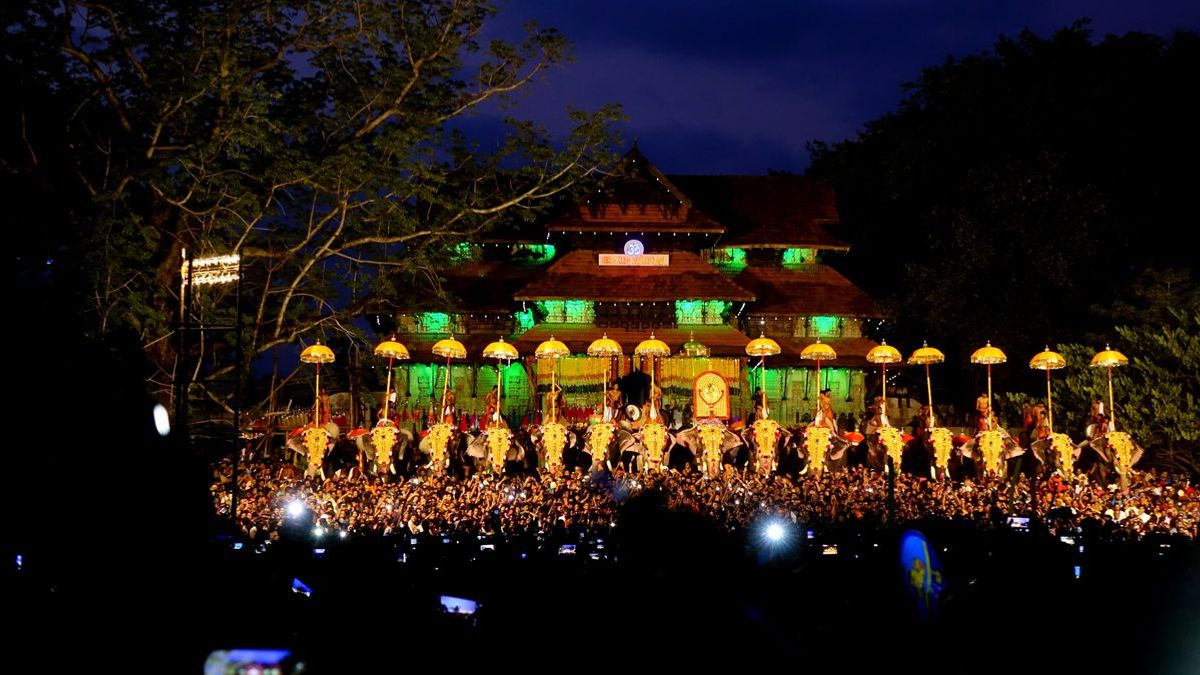
India-Nepal railway link: Why India has to challenge China in a race it can’t win?
The recent three-day visit to India by Nepali Prime Minister KP Oli is being seen satisfactory by both India and Nepal, with many in India even considering it as a masterstroke by the Narendra Modi government to win back Nepal's loyalty and putting China's ambitious plans in the Himalayan country under challenge.

The Oli visit saw three agreements were signed between the two sides, including a railway project connecting Raxaul in Bihar with Kathmandu, the capital of Nepal; one on inland waterways connectivity and also one on agricultural development in Nepal. The occasion also saw Oli and Modi vowing to take the bilateral relations "to newer heights on the basis of equality, mutual trust, respect and benefit" in a 12-point joint statement.
Nepal's satisfaction over the visit by its premier, who is a strong leader with a heavy mandate supporting him back home, is understandable but from India's point of view, there is not enough reason to feel elated about even if we give the Modi government the credit of trying to address the relationship with one of the oldest regional friends which were bruised in recent years.
Nepal's growing nationalist assertiveness
The first reason why India should not feel that its duty to address the trust deficit with Nepal has been fulfilled is an assertive Nepal. Oli, who is perceived to be not India-friendly, said prior to his arrival to India that he would not sign an agreement which goes against Nepal's national interest. This is an unprecedented but pragmatic stance taken by Oli, who despite knowing very well that Kathmandu cannot really accomplish things without India's help, reiterated that he is most concerned about his own country's interests.
At a time when Nepal has taken a firm foot towards representative democracy and the common people, there have felt hurt by India's big-brotherly attitude, Oli's statesmanship could not have been more assertive.
He has given a firm impression that Nepal could not be taken for granted as a small and backward state sandwiched between two huge neighbours and has started growing a voice of its own articulating its own viewpoints and needs. For Modi and the future leaders in New Delhi, this should mark an alert.
To deal with Nepal from now on, India's policy-makers would have to think afresh and not follow the traditional ways of dealing with a smaller and weaker neighbour. Oli has also set up a precedent for Nepal's political class on how to outsmart your opponents by playing the nationalist card, something leaders around the globe are doing with perfection.
India India has to make a symbolic race with China?
The second reason why India should not feel that it has dealt with Nepal exceedingly well this time is its decision to strengthen communication with the neighbour to facilitate people-to-people contact and heavy movement of goods. This ploy is nothing but an also-ran policy vis-à-vis China.
Beijing has promised to lay down the Tibet-Kathmandu railway line by 2022 while India would only complete the survey of its linking projects with Kathmandu by 2019. It did not commit any deadline to complete the project either, something Oli sought.
This step by India to compete with the Chinese influence in the region makes little sense and only pushes New Delhi into a contest with Beijing it would never be able to win. The pressure to perform on India is immense and it aped a Chinese model but the question remains: With a natural border with Nepal and a high movement of people and goods between the two countries over the ages, why does India require more transport facilities to boost people-to-people contacts today? India should have been confident enough of its historical and cultural ties with Nepal and not just act symbolically now to show to the Chinese that we are also there with our counter plan. And even if it has decided to do something along those lines, why didn't it do such things decades ago?
If China pushes ahead with its railway link with Nepal and makes the Belt and Road Initiative a reality in Nepal's economic life sooner, one is afraid there could be not much for India to do with its links apart from serving the interests of the cultural bit. India needed to think out other ways to facilitate Nepalis living in India or how to help the landlocked country boost its own economy through more cooperation - bilateral or multilateral. The explicit obsession with the 'China factor' would not do India-Nepal relations any help.
The problem with India's policy-making is that its democratic setup destroys the continuity in government policy consistencies. Each government comes up with its own new priorities and policies while for the Chinese, the solid party rule irrespective of the season only consolidates its national interest.
Nepal, like any other smaller country near China trying to make the most from its economic surge, is considering Beijing as a more fruitful option than India. For New Delhi, this isn't easy to stomach this new reality but given its economic limitations vis-à-vis China, it has to decide on its steps accordingly.
At the moment, Nepal has upgraded its foreign policy conduct while India is still falling back on the traditional way.


 Click it and Unblock the Notifications
Click it and Unblock the Notifications






























